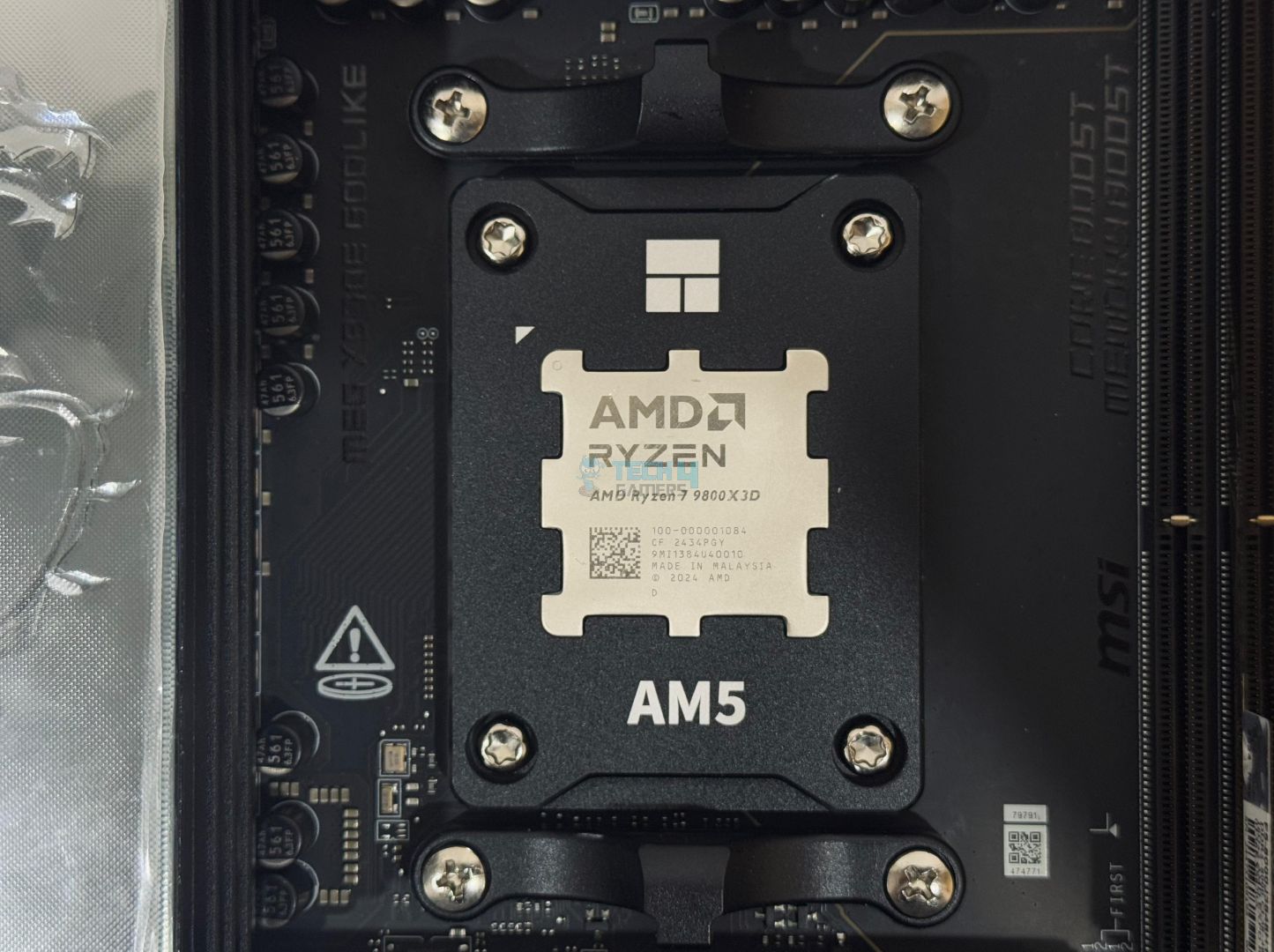- You shouldn’t be comparing the Core Ultra 9 285K to the Ryzen 7 9800X3D to begin with as both CPUs have different target audiences and MSRPs.
- Unfortunately, scalping trends pushed the 9800X3D’s price to rival that of Intel’s offering and even surpass it in some cases, thus prompting this hotly debated comparison.
- The Ryzen 7 9800X3D trumps the Core Ultra 9 285K by an average differential of 40% in gaming performance, losing by the same percentage in productivity-based workflows.
With the Ryzen 7 7800X3D successfully proving itself to be one of the best gaming CPUs of all time, it would only make sense that the Ryzen 7 9800X3D would have intense buyer appeal at the time of its launch.
Since then, the Ryzen 7 9800X3D has been the victim of immense scalping, as in, artificially manipulating supply chains to make it seem as if the demand for the most popular gaming processor has drastically pumped.
Courtesy of such ludicrous pricing trends, the Ryzen 7 9800X3D is now the subject of relentless comparisons against the very best that Intel has to offer, i.e., the Core Ultra 9 285K despite it having a 23% higher MSRP than AMD’s latest 3D V-Cache CPU.
On that note, I feel compelled to inform you that while the purpose of the Intel Core Ultra 9 285 was not solely intended for gaming, it does still compare very favourably to the Ryzen 7 9800X3D.
If anything, the Ryzen 7 9800X3D gets blown out of the water by the sheer raw grunt of the Core Ultra 9 285K when it comes to workflows based on productivity, but I’ll get to that in a bit.
Gaming: Ryzen 7 9800X3D or Core Ultra 9 285K?
Since the Core Ultra 9 285K represents the very best of Intel’s 15th Generation ‘Arrow Lake,’ you would assume it crushes the Ryzen 7 9800X3D when it comes to gaming, especially considering the fact that the latter is superiorly priced by a factor of 23%.
Alas, you would be very wrong.

Thanks to AMD working its proprietary magic with 3D V-Cache, the Ryzen 7 9800X3D bore an average advantage of at least 40% as compared to the Intel Core Ultra 9 285K in a variety of different gaming titles.
The difference between the two CPUs really came into light when you took the 1% Low FPS into account, i.e., the Ryzen 7 9800X3D offered much smoother gameplay all while minimizing its power draw by 25% in contrast to the Core Ultra 9 285K. Absolutely monumental.
Productivity: This Looks Bad For The Ryzen 7 9800X3D
For the Intel enthusiasts out there, you needn’t worry. It’s not all doom and gloom yet for the Core Ultra 9 285K.
That’s because Intel’s flagship CPU mercilessly overpowers and dominates the Ryzen 7 9800X3D when it comes to pursuing productivity workflows.

If anything, the Intel Core Ultra 9 285K crushes the AMD Ryzen 7 9800X3D in applications and workloads based on productivity by the same factor (if not more) it lost to the AMD CPU when being tested for gaming performance.
Feel free to head over here and check out our detailed presentation and analysis of the showdown between these two powerhouse processors as far as productive workflows are concerned.
Which Is Better: It’s Not A Fair Comparison
The Ryzen 7 9800X3D starts out as an 8-core/16-thread CPU whereas the Core Ultra 9 285K boasts a beastly 24-core/24-thread setup which is meant to intimidate the likes of AMD’s flagship processor, i.e., the Ryzen 9 9950X.
Moving on, the Ryzen 7 9800X3D, thanks to its 96 MB of L3 Cache (as opposed to 36 MB for the Core Ultra 9 285K) as part of AMD’s revolutionary 3D V-Cache is able to outperform the best of the best silicon that Intel has to offer, at least as far as gaming is concerned.

But what’s interesting is that the Ryzen 7 9800X3D does it all while sipping up to 30% less power than Intel’s high-maintenance CPU.
In fact, even when both CPUs are fully stressed, the Ryzen 7 9800X3D will consume up to 120W in comparison to 125W for the Core Ultra 9 285K.
It’s a measly difference, but when the former processor is offering up to twice the FPS in the latest titles, it’s a remarkable achievement.
Pricing: Which One Comes Out On Top?
Adding insult to injury, the Ryzen 7 9800X3D is priced at $480 unlike the Core Ultra 9 285K which starts out at $590. Now here’s where things get slightly more complicated.
Courtesy of hyped-up demand and anticipation, the prices for both these processors vary greatly to the extent that I initially saw the Ryzen 7 9800X3D climb upwards of $600.
However, it doesn’t help that even if you were able to find both CPUs at MSRP, I’d still recommend the Ryzen 7 9800X3D unless you’re a serious professional who needs to crunch some numbers and throw a few productivity-based applications at your PC.
Thank you! Please share your positive feedback. 🔋
How could we improve this post? Please Help us. 😔
[Wiki Editor]
Ali Rashid Khan is an avid gamer, hardware enthusiast, photographer, and devoted litterateur with a period of experience spanning more than 14 years. Sporting a specialization with regards to the latest tech in flagship phones, gaming laptops, and top-of-the-line PCs, Ali is known for consistently presenting the most detailed objective perspective on all types of gaming products, ranging from the Best Motherboards, CPU Coolers, RAM kits, GPUs, and PSUs amongst numerous other peripherals. When he’s not busy writing, you’ll find Ali meddling with mechanical keyboards, indulging in vehicular racing, or professionally competing worldwide with fellow mind-sport athletes in Scrabble. Currently speaking, Ali’s about to complete his Bachelor’s in Business Administration from Bahria University Karachi Campus.
Get In Touch: alirashid@tech4gamers.com




